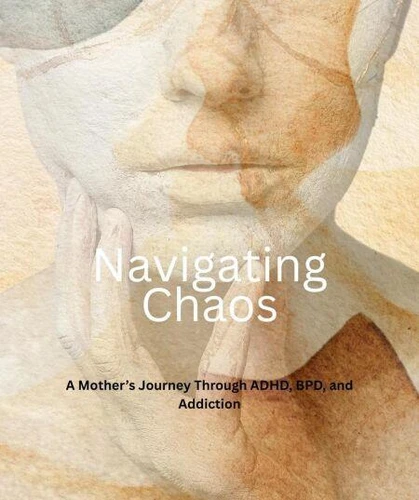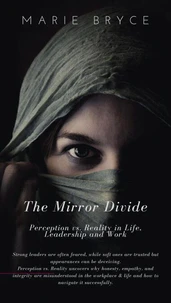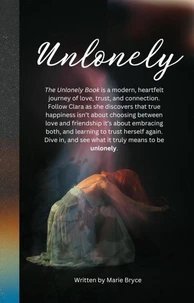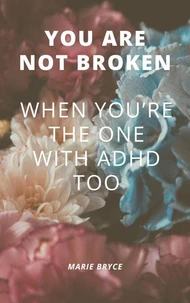Nouveauté
Navigating Chaos
Par :Formats :
Disponible dans votre compte client Decitre ou Furet du Nord dès validation de votre commande. Le format ePub est :
- Compatible avec une lecture sur My Vivlio (smartphone, tablette, ordinateur)
- Compatible avec une lecture sur liseuses Vivlio
- Pour les liseuses autres que Vivlio, vous devez utiliser le logiciel Adobe Digital Edition. Non compatible avec la lecture sur les liseuses Kindle, Remarkable et Sony
 , qui est-ce ?
, qui est-ce ?Notre partenaire de plateforme de lecture numérique où vous retrouverez l'ensemble de vos ebooks gratuitement
Pour en savoir plus sur nos ebooks, consultez notre aide en ligne ici
- FormatePub
- ISBN8231229260
- EAN9798231229260
- Date de parution01/09/2025
- Protection num.pas de protection
- Infos supplémentairesepub
- ÉditeurWalzone Press
Résumé
The first time I realized something was different, it wasn't with a diagnosis or a test it was with an innocent tantrum. But to understand that moment, I have to go back to the beginning. When Axelle was born, she was the quietest baby I'd ever seen. Sweet and beautiful, she lay in my arms with eyes closed, her blonde hair catching the nursery light. Neighbours and nurses would pause at the door, breathless over her rosy cheeks and green eyes.
I remember thinking, "How lucky am I?"Yet even then, there was an odd stillness about her. While my older daughters laughed and cooed, Axelle would stare without smiling, as if she were watching a world I couldn't see. By the time she turned one, the first tantrums erupted bath time was a battlefield, meals became a siege. A squeal here, a kick there; every routine turned into a clash of wills. I took her to our pediatrician, who told me she was perfectly normal and simply needed encouragement.
We tried negotiating: rewards for brushing teeth, stickers for bedtime. When encouragement failed, bribes crept in ice-cream breaks for five minutes of peace. Nothing worked. When Axelle was five, I sought out a specialist. He called her "strong-willed" and recommended more positive reinforcement. I devoured parenting books and online forums, desperate for answers. At home, chaos reigned over, tantrums, tears, and daily meltdowns that left us all raw.
Axelle often complained of stomach aches. Multiple tests later, doctors found nothing physically wrong. I sensed it was anxiety, but no one called it that. At ten, I pushed for an ADHD evaluation. Axelle wasn't bouncing off walls, but she was emotionally intense and craved my constant attention an impossibility with two other children, a job, and a house to run. By then, I was newly divorced; her father, frustrated and fearful, resorted to harsh punishments that only deepened her despair.
When the ADHD tests came back negative, I felt adrift. I thought this was who she was in this storm of emotion and defiance but deep down, I knew we hadn't found the real cause. Something bigger was waiting to be uncovered, and that first innocent tantrum was only the beginning of our journey.
I remember thinking, "How lucky am I?"Yet even then, there was an odd stillness about her. While my older daughters laughed and cooed, Axelle would stare without smiling, as if she were watching a world I couldn't see. By the time she turned one, the first tantrums erupted bath time was a battlefield, meals became a siege. A squeal here, a kick there; every routine turned into a clash of wills. I took her to our pediatrician, who told me she was perfectly normal and simply needed encouragement.
We tried negotiating: rewards for brushing teeth, stickers for bedtime. When encouragement failed, bribes crept in ice-cream breaks for five minutes of peace. Nothing worked. When Axelle was five, I sought out a specialist. He called her "strong-willed" and recommended more positive reinforcement. I devoured parenting books and online forums, desperate for answers. At home, chaos reigned over, tantrums, tears, and daily meltdowns that left us all raw.
Axelle often complained of stomach aches. Multiple tests later, doctors found nothing physically wrong. I sensed it was anxiety, but no one called it that. At ten, I pushed for an ADHD evaluation. Axelle wasn't bouncing off walls, but she was emotionally intense and craved my constant attention an impossibility with two other children, a job, and a house to run. By then, I was newly divorced; her father, frustrated and fearful, resorted to harsh punishments that only deepened her despair.
When the ADHD tests came back negative, I felt adrift. I thought this was who she was in this storm of emotion and defiance but deep down, I knew we hadn't found the real cause. Something bigger was waiting to be uncovered, and that first innocent tantrum was only the beginning of our journey.
The first time I realized something was different, it wasn't with a diagnosis or a test it was with an innocent tantrum. But to understand that moment, I have to go back to the beginning. When Axelle was born, she was the quietest baby I'd ever seen. Sweet and beautiful, she lay in my arms with eyes closed, her blonde hair catching the nursery light. Neighbours and nurses would pause at the door, breathless over her rosy cheeks and green eyes.
I remember thinking, "How lucky am I?"Yet even then, there was an odd stillness about her. While my older daughters laughed and cooed, Axelle would stare without smiling, as if she were watching a world I couldn't see. By the time she turned one, the first tantrums erupted bath time was a battlefield, meals became a siege. A squeal here, a kick there; every routine turned into a clash of wills. I took her to our pediatrician, who told me she was perfectly normal and simply needed encouragement.
We tried negotiating: rewards for brushing teeth, stickers for bedtime. When encouragement failed, bribes crept in ice-cream breaks for five minutes of peace. Nothing worked. When Axelle was five, I sought out a specialist. He called her "strong-willed" and recommended more positive reinforcement. I devoured parenting books and online forums, desperate for answers. At home, chaos reigned over, tantrums, tears, and daily meltdowns that left us all raw.
Axelle often complained of stomach aches. Multiple tests later, doctors found nothing physically wrong. I sensed it was anxiety, but no one called it that. At ten, I pushed for an ADHD evaluation. Axelle wasn't bouncing off walls, but she was emotionally intense and craved my constant attention an impossibility with two other children, a job, and a house to run. By then, I was newly divorced; her father, frustrated and fearful, resorted to harsh punishments that only deepened her despair.
When the ADHD tests came back negative, I felt adrift. I thought this was who she was in this storm of emotion and defiance but deep down, I knew we hadn't found the real cause. Something bigger was waiting to be uncovered, and that first innocent tantrum was only the beginning of our journey.
I remember thinking, "How lucky am I?"Yet even then, there was an odd stillness about her. While my older daughters laughed and cooed, Axelle would stare without smiling, as if she were watching a world I couldn't see. By the time she turned one, the first tantrums erupted bath time was a battlefield, meals became a siege. A squeal here, a kick there; every routine turned into a clash of wills. I took her to our pediatrician, who told me she was perfectly normal and simply needed encouragement.
We tried negotiating: rewards for brushing teeth, stickers for bedtime. When encouragement failed, bribes crept in ice-cream breaks for five minutes of peace. Nothing worked. When Axelle was five, I sought out a specialist. He called her "strong-willed" and recommended more positive reinforcement. I devoured parenting books and online forums, desperate for answers. At home, chaos reigned over, tantrums, tears, and daily meltdowns that left us all raw.
Axelle often complained of stomach aches. Multiple tests later, doctors found nothing physically wrong. I sensed it was anxiety, but no one called it that. At ten, I pushed for an ADHD evaluation. Axelle wasn't bouncing off walls, but she was emotionally intense and craved my constant attention an impossibility with two other children, a job, and a house to run. By then, I was newly divorced; her father, frustrated and fearful, resorted to harsh punishments that only deepened her despair.
When the ADHD tests came back negative, I felt adrift. I thought this was who she was in this storm of emotion and defiance but deep down, I knew we hadn't found the real cause. Something bigger was waiting to be uncovered, and that first innocent tantrum was only the beginning of our journey.








